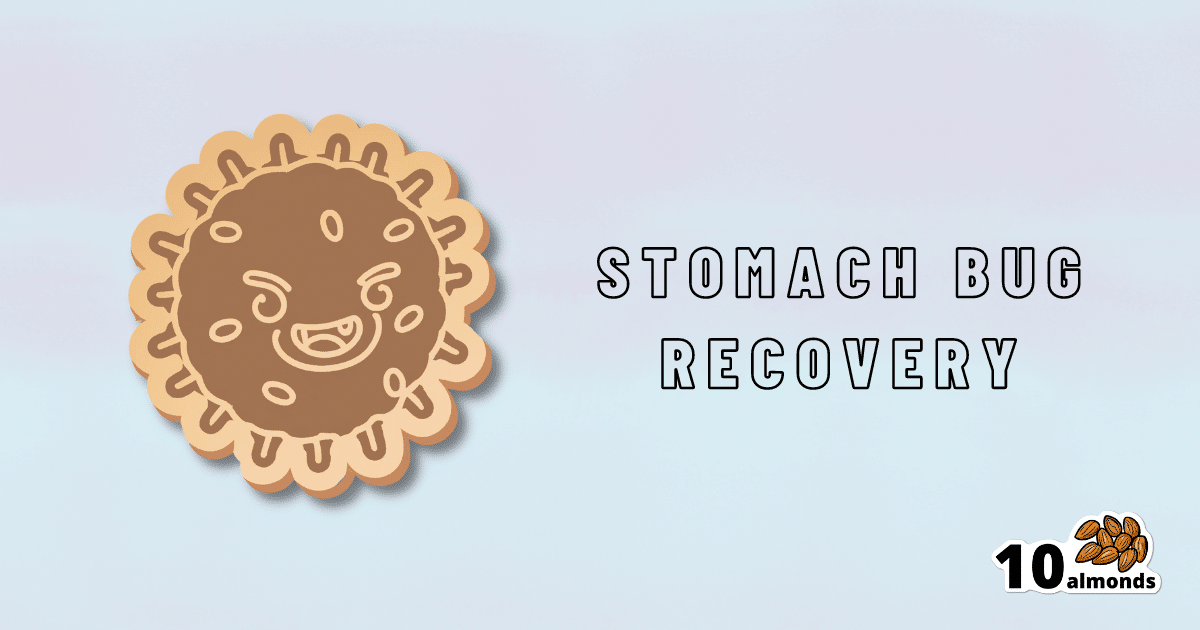How To Recover Quickly From A Stomach Bug
How to Recover Quickly from a Stomach Bug: Tips for a healthy immune system, hydration with peppermint or ginger tea, and clear broths. Avoid caffeine, fat, and consider apple cider vinegar.

How To Recover Quickly From A Stomach Bug
Is it norovirus, or did you just eat something questionable? We’re not doctors, let alone your doctors, and certainly will not try to diagnose from afar. And as ever, if unsure and/or symptoms don’t go away or do get worse, seek professional medical advice.
That out of the way, we can give some very good general-purpose tips for this one…
Help your immune system to help you
So far as you can, you want a happy healthy immune system. For the most part, we’d recommend the following things:
Beyond Supplements: The Real Immune-Boosters!
…but you probably don’t want to be exercising with a stomach bug, so perhaps sit that one out. Exercise is the preventative; what you need right now is rest.
Hydrate—but watch out
Hydration is critical for recovery especially if you have diarrhea, but drinking too much water too quickly will just make things worse. Great options for getting good hydration more slowly are:
- Peppermint tea
- (peppermint also has digestion-settling properties)
- Ginger tea
- See also: Ginger Does A Lot More Than You Think
- Broths
- These will also help replenish your sodium and other nutrients, gently. Chicken soup for your stomach, and all that. A great plant-based option is sweetcorn soup.
- By broths, we mean clear(ish) water-based soups. This is definitely not the time for creamier soups.
❝Milk and dairy products should be avoided for 24 to 48 hours as they can make diarrhea worse.
Initial dietary choices when refeeding should begin with soups and broth.❞
Source: American College of Gastroenterology
Other things to avoid
Caffeine stimulates the digestion in a way that can make things worse.
Fat is more difficult to digest, and should also be avoided until feeling better.
To medicate or not to medicate?
Loperamide (also known by the brand name Imodium) is generally safe when used as directed.
Click here to see its uses, dosage, side effects, and contraindications
Antibiotics may be necessary for certain microbial infections, but should not be anyone’s first-choice treatment unless advised otherwise by your doctor/pharmacist.
Note that if your stomach bug is not something that requires antibiotics, then taking antibiotics can actually make it worse as the antibiotics wipe out your gut bacteria that were busy helping fight whatever’s going wrong in there:
- Facing a new challenge: the adverse effects of antibiotics on gut microbiota and host immunity
- Antibiotics as major disruptors of gut microbiota
- Microbiotoxicity: antibiotic usage and its unintended harm to the microbiome
A gentler helper
If you want to give your “good bacteria” a hand while giving pathogens a harder time of it, then a much safer home remedy is a little (seriously, do not over do it; we are talking 1–2 tablespoons, or around 20ml) apple cider vinegar, taken diluted in a glass of water.
❝Several studies indicate apple cider vinegar (ACV)’s usefulness in lowering postprandial glycemic response, specifically by slowing of gastric motility❞
(Slowing gastric motility is usually exactly what you want in the case of a stomach bug, and apple cider vinegar)
See also:
- Antimicrobial activity of apple cider vinegar against Escherichia coli, Staphylococcus aureus and Candida albicans
- Antibacterial apple cider vinegar eradicates methicillin resistant Staphylococcus aureus and resistant Escherichia coli
Take care!
Share This Post
Learn To Grow
Sign up for weekly gardening tips, product reviews and discounts.




